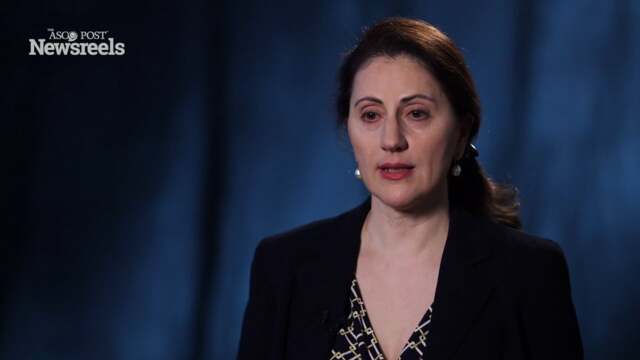Everett E. Vokes, MD, on Controversies in Stage IIIA Disease
2015 IASLC World Conference on Lung Cancer
Everett E. Vokes, MD, of the University of Chicago, summarizes expert views on treating stage IIIA disease: decision-making in selecting patients for surgery; multiple-modality choices; and using induction chemotherapy (Abstract ED10).
Nagashree Seetharamu, MD
Nagashree Seetharamu, MD, of the North Shore LIJ Health System, discusses serum AGA-signatures that may provide a minimally invasive test for early detection of lung cancer risk (Abstract P3.04-085).
Vassiliki Papadimitrakopoulou, MD
Vassiliki Papadimitrakopoulou, MD, of MD Anderson Cancer Center, discusses the ways in which patients, investigators, and pharmaceutical companies are working together to accelerate research and access to care (Abstract MTE 02.01).
Jennifer King, PhD
Jennifer King, PhD, of the Lung Cancer Alliance, gives her perspective on major themes of this year’s meeting: the stigma of lung cancer, the changing face of who is affected, early detection, and advances in immunotherapy.
Karen Kelly, MD
Karen Kelly, MD, of the University of California, Davis, summarizes three important papers on NSCLC: expression as a predictive biomarker; pembrolizumab, immune-mediated adverse events, and corticosteroid use; and an evaluation of disease-related symptoms in patients treated with nivolumab or docetaxel (Abstracts ORAL 31.01, 31.02, and 31.03).
Pasi A. Jänne, MD, PhD
Pasi A. Jänne, MD, PhD, of Dana-Farber Cancer Institute, summarizes a workshop he conducted on the state of the art in next-generation sequencing of lung cancer (Abstract WS 01.07).





